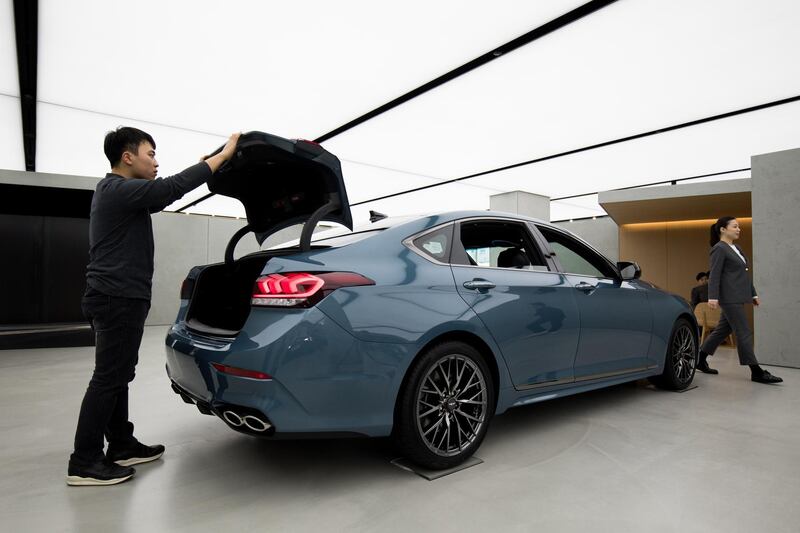Hyundai Motor on Thursday reported a 3 per cent gain in quarterly net profit, but a fifth straight drop in annual earnings as a stronger local currency and weak US and Chinese sales eroded the car maker's bottom line for 2017.
Hyundai, the world's fifth-biggest car maker along with affiliate Kia Motors, reported a net profit of 1.03 trillion won (Dh3.56 billion) for the fourth quarter ended December, in line with the 1.09tn won average estimate from 21 analysts polled by Reuters.
But its operating profit slumped 24 per cent to 775bn won and sales fell 0.2 per cent to 24.5tn won.
For the full year, it posted a net profit of 4.03tn won, versus 5.41tn won a year ago.
The news came as Hyundai is recalling nearly 88,000 cars in the US because an electrical short in the antilock brake system could cause engine-compartment fires.
The recall affects certain 2006 Sonatas and 2006 through 2011 Azeras.
___________
Read more:
Kia plans to roll-out 16 new electric or hybrid models by 2025
Hyundai Motor, Kia Motors flag slow sales growth in 2018
___________
Hyundai says in government documents posted Wednesday that water can get into the antilock brake module and cause a short. The module can overheat and cause a fire even when the cars are turned off. Hyundai said there is no need to park the cars outdoors until repairs are made.
Dealers will install a relay in the main electrical box to shut down the antilock brake modules while the cars are turned off. The recall should begin February 23. Documents show one overheated module in South Korea and smoke in an engine compartment in the US near the antilock brake module.
The cars don't need to be parked outside because the recall is precautionary to address a problem in rare conditions, Hyundai spokesman Michael Stewart said. The conditions include moisture getting into the ABS module, typically from high-pressure engine washing, an electrical short from the moisture, and continuous power to the ABS module "while the vehicle is stored for an extended period of time with the key off", Mr Stewart.
Hyundai has no concerns about the short-circuit happening while engines are running because the condition is specific to having the key in the off position and the cars being stored for one to two weeks, Mr Stewart said.





